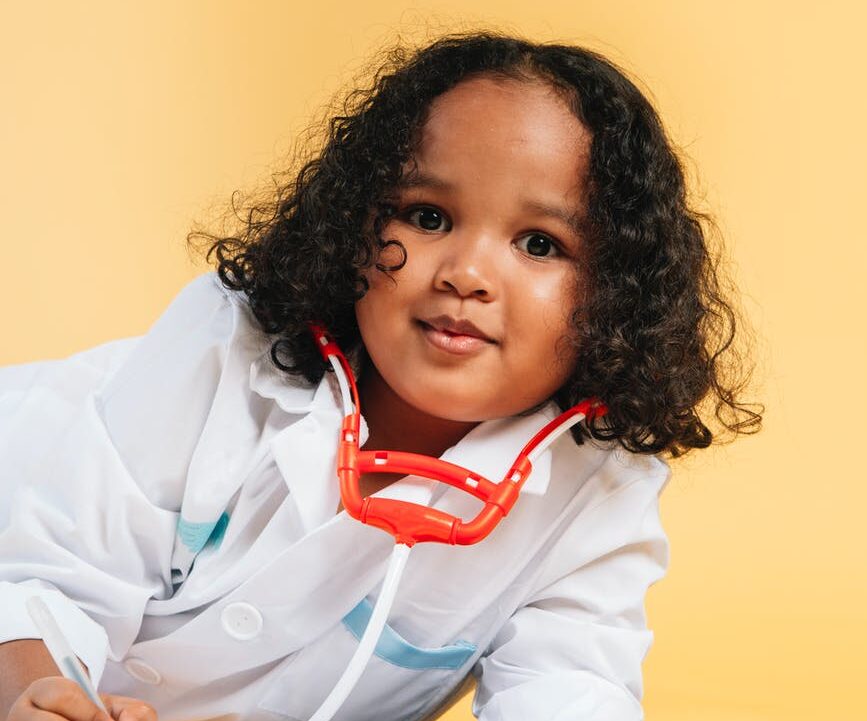Preparing for your child to undergo pediatric surgery can be nerve-wracking. You may have a lot of questions and fears.
That’s okay! Our team of Austin’s best pediatric surgeons has immense compassion for what you’re going through and how you’re feeling.
We’ve compiled this resource to help you understand what to expect and how to prepare for your child’s gastrointestinal surgery.
“Undergoing surgery while they’re young can greatly improve their quality of life now and prevent even greater risks later in life.”
Pediatric GI Conditions that May Require Surgery
Our surgical team is equipped to correct many different pediatric GI issues. Some of the more common ailments are appendicitis and tumors, as well as issues involving the esophagus, stomach, and intestines.
Appendicitis
Appendicitis is the most common pediatric GI surgery. Your child may have belly pain, vomiting, and a fever. If appendicitis is diagnosed, this requires appendicitis surgery to remove it.
Intestinal Obstruction or Blockage
A bowel obstruction can occur when part of the intestine is blocked due to a tumor, scar tissue, or another obstruction. Food and stool may be unable to pass through the intestine, leading to serious complications.
Meckel’s Diverticulum
Meckel’s diverticulum occurs when the child’s small intestine has an outpouching in the wall. It’s only found in about 2% of the population and is the most common congenital intestinal malformation.
The Risks of GI Surgery
While every type of surgery carries some level of risk, consenting to have your child undergo gastrointestinal surgery is a big decision. It’s important to be informed of the risks.
Anesthesia risks are closely tied to the child’s overall health. The more fragile their health, the higher the risk.
Some parents worry about scar tissue after surgery. Scar tissue forming after GI surgery can lead to bowel obstruction down the road. The risk is quite low (less than 2%) for appendectomy procedures and somewhat higher for other abdominal operations.
Each child’s situation is unique and may come with specific risks or complications. Consult your surgeon to discuss your child’s specific risk level.
How to Prepare Your Child for Surgery
Depending on your child’s age, they could be unphased by the prospect of surgery, or they could be experiencing anxiety related to the unknown.
Your child must know you support how they feel. Engage in open and honest communication appropriate for their age level.
If you or your child have questions, please pass these on to our staff. We want them to know their concerns are important to us.
Comfort Measures
A toddler may require simple explanations that give an overview of expectations without overwhelming the child. Prepare an elementary-age child a few days in advance to allow them to adjust to the idea. Young children may also enjoy being able to bring a special stuffed animal or blanket to the medical center on the day of surgery.
An older child may appreciate meeting the surgical team and touring the facility in advance. Teens and pre-teens should be allowed to bring comfort and entertainment gear to the hospital with them to keep their nerves at bay.
How Long Does Surgery Take?
Each patient’s needs will be different. With pediatric patients, unique challenges may present and the procedure could take longer.
Common laparoscopic surgeries and bowel resection operations can take between one and four hours. More complex diagnoses could take longer. Your surgeon will be able to provide an estimate for your child’s particular case.
Post-Op Recovery
Our team is here to support you and your child’s recovery. Here are a few standard post-op care instructions to help you provide the best care for your child.
- Keep the dressing or surgical site clean and dry. Do not remove the steri-strips from the dressing.
- Mild irritation, bruising, or swelling is common for the first week after the procedure.
- If your child is nauseous, keep them on a clear fluid diet until it passes.
- Bathing instructions may differ depending on the operation, but it’s general practice to avoid swimming and bathtubs for seven to 14 days.
Follow all medication instructions closely, and don’t hesitate to contact your doctor if you have any questions.
Keep an eye out for any of the following symptoms and call the doctor if they occur.
- Fever of 101.5 or higher
- Excessive bleeding, drainage, or spreading redness
- Constipation lasting longer than two days
- Persistent nausea or vomiting
More than 20 Years of Experience Caring for Children in Austin
Nothing is more important than the health and safety of your child. Some of the more complex gastrointestinal diagnoses can have long-term, negative effects on your child’s ability to function normally. Undergoing surgery while they’re young can greatly improve their quality of life now and prevent even greater risks later in life.
Our team of expert physicians specializes in pediatric surgical treatment. APS surgeons are committed to offering the highest quality care to achieve the best possible patient outcomes through state-of-the-art pediatric surgical services.
If you would like to schedule a consultation for your child or discuss their care with our team, please don’t hesitate to reach out! We are committed to your child’s health and your peace of mind.

